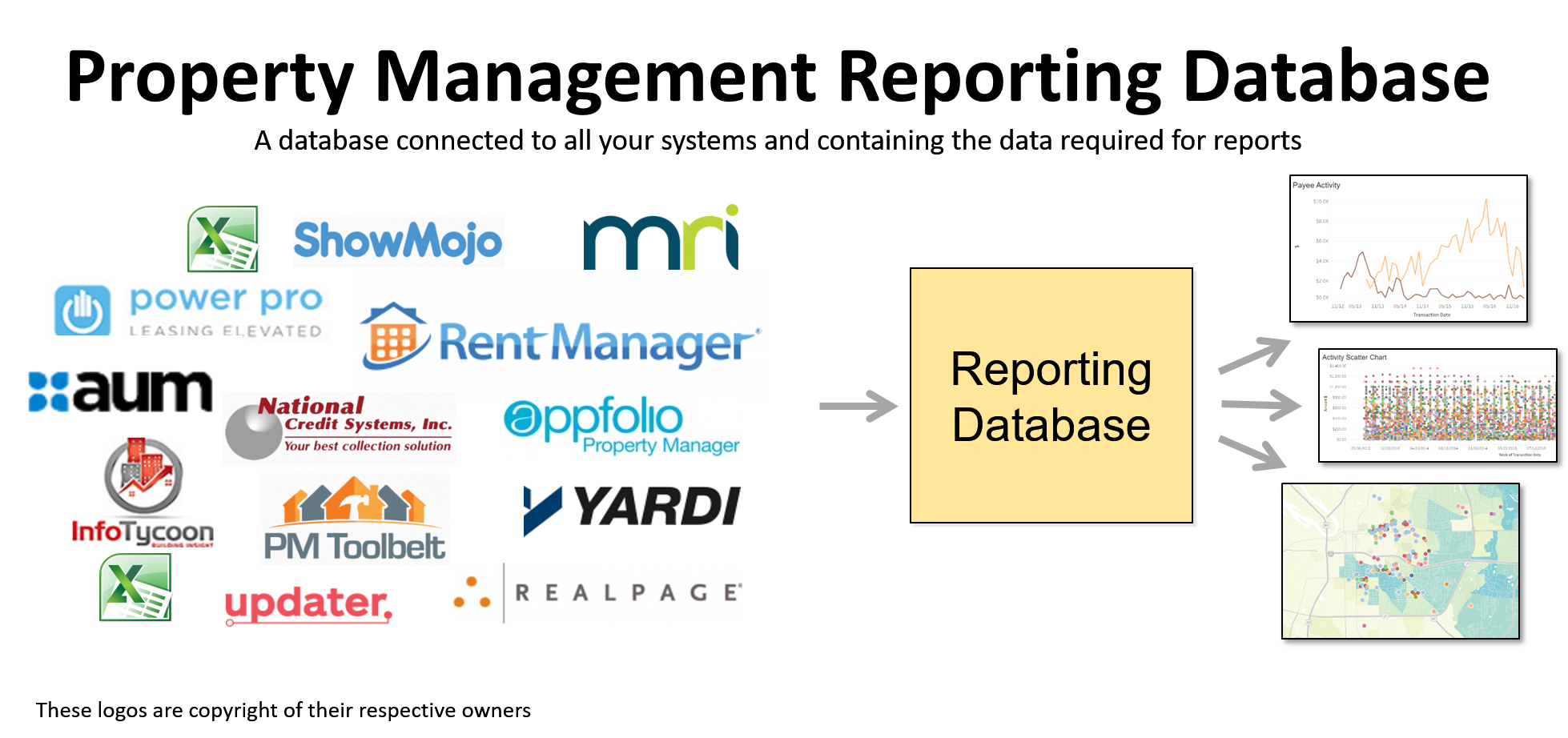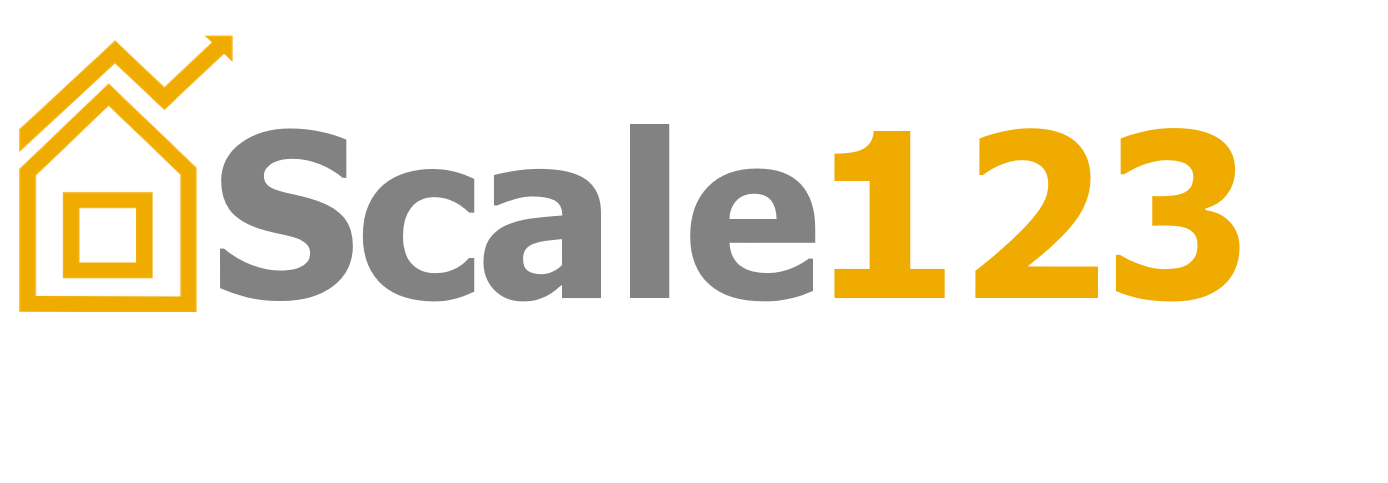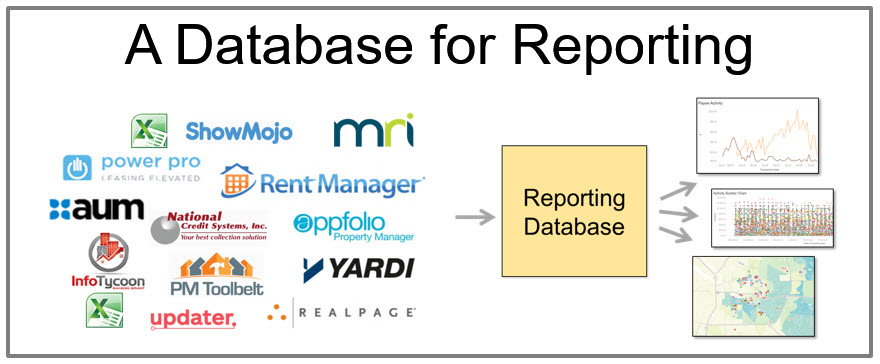It is very common for large companies to have databases that are used for reporting and data mining. These databases are referred to as Data Warehouses, and data from many different systems is fed into the Data Warehouse each day.
So, instead of running a report off the accounting system or the customer service system, reports can be run off the data warehouse, or in your case, your property management database. In my career I have designed and built data warehouses for several very large companies. It used to be an expensive undertaking, even for companies with big budgets. But this is no longer the case. Data warehouses can now be made available to property management companies of all sizes. So consider these benefits as you also learn about the investment.
Benefits of a Reporting Database:
Here are some of benefits of having your own property management database dedicated to reporting and data mining:
- Data for Life: The data stays with you even when you change systems (the database becomes a permanent asset).
- Complete Picture: You can get a complete view of your business processes (for example, if you are using two or three systems to fulfill all facets of a maintenance request, in the data warehouse you can see entire lifecycle of the request (initial ticket, photos, emails and text messages, invoices, receipts, customer survey results etc.) in one place).
- Transaction Detail: You will have the ability to drill down to the transaction level of detail. This is useful for auditing and root cause analysis.
- Custom Reports: You can create your own reports. You are no longer dependent on the reports provided by your property management system or the other systems you use to run your business.
- Mix Data from Multiple Sources: Not only can you combine data from multiple systems, you can add data your purchase from third parties, or data created in your spreadsheets.
- Visualization Tools: You can attach your preferred data visualization tools and dashboard technologies to pull the data and present it. You are not stuck with the report writer of the property management system you use.
- Terminology: You control the terminology you use in your reports. A property, unit and asset might be three different names for the same thing, depending on which systems you use. In your property management reporting database, you get to call it what you want.
- Changing Org Structure: When there are changes to your regions, territories, management hierarchy etc. it could make it difficult to compare performance of previous time periods. A reporting database can maintain consistency (for example, last year Central Region contained 5 properties, this year you reassigned one of these properties to the Western Region. The regional comparison report might not make sense).
- Historical Snapshots: The systems you use for running your property management business might not maintain an audit trail of activities. For example, your property management system might tell you that Unit 10A is currently leased, but the system might not be able to show you when it was leased, vacant, listed, shown etc. You can build this trail in your property management database.
These are some of the benefits. Please share your comments and suggestions for other benefits.
A Property Management Database Diagram:
This diagram visually depicts the flow of information from many different systems into a clean “property management data warehouse.” In order to avoid technical jargon, I prefer to use the term “property management database”.
[wpbuttons ids=”1_1″]

property management reporting database
References:
If you are interested in learning about data warehousing, here are two links …
The Data Warehousing Institute (TDWI) – Resources page
Kimball Group – Resources page. I learned how to design data warehouses and create reporting data models by reading Ralph Kimball’s books.


